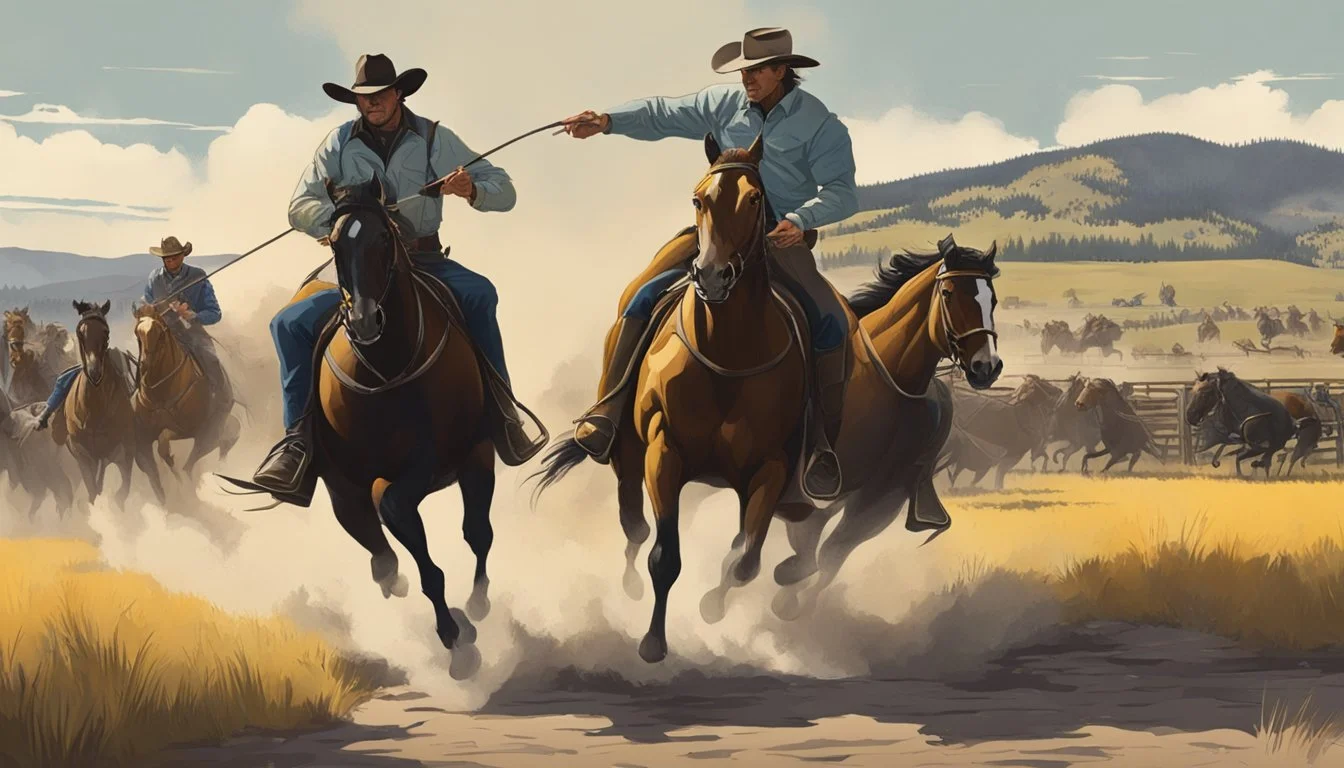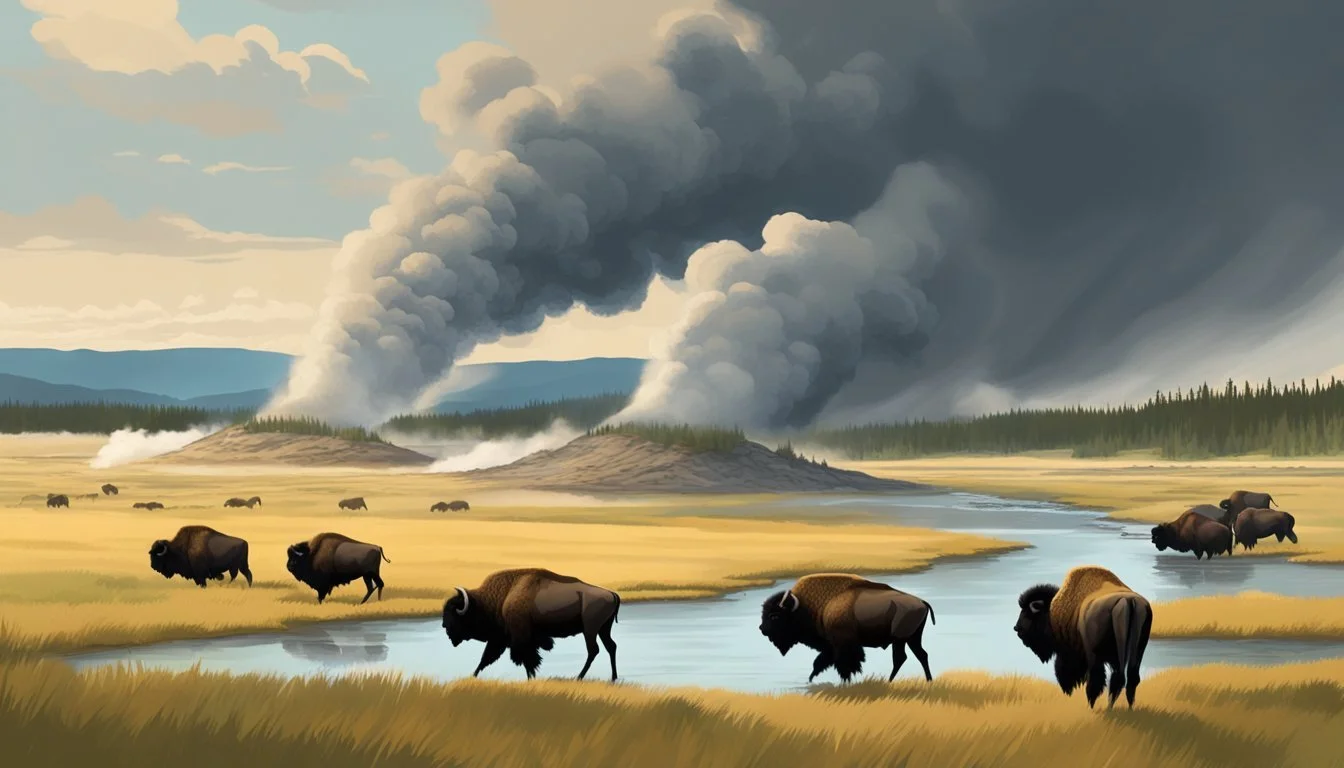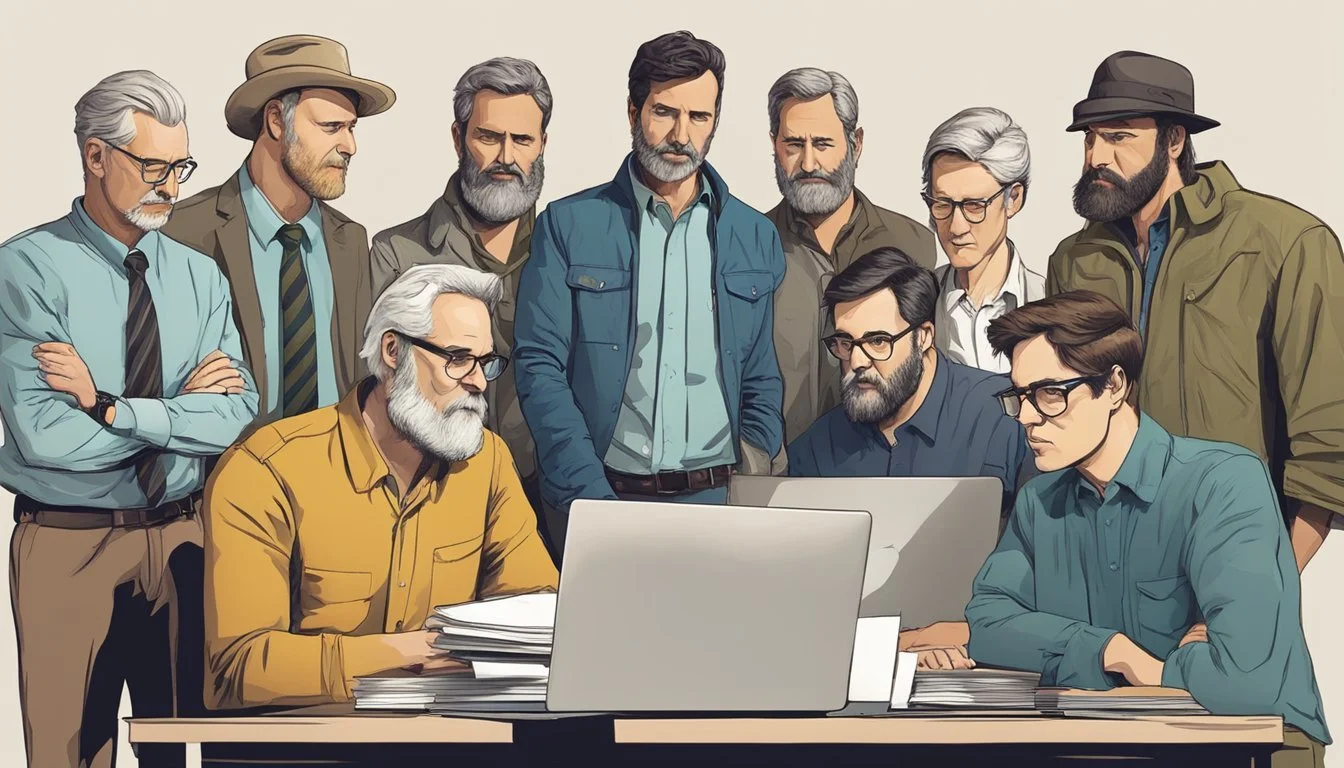Unlock the Secrets: Yellowstone Series Wiki Is Your Ultimate Guide to Drama!
Yellowstone, the gripping neo-Western drama series, has captivated audiences with its intense portrayal of the Dutton family's struggles to maintain control of their vast Montana ranch. Created by Taylor Sheridan and John Linson, the show aired on Paramount Network from June 20, 2018, to December 15, 2024, spanning multiple seasons of high-stakes conflicts and family drama.
The series stars Kevin Costner as John Dutton, the patriarch of a powerful ranching dynasty, alongside a talented ensemble cast including Luke Grimes, Kelly Reilly, and Wes Bentley. Set against the backdrop of Montana's rugged landscapes, Yellowstone explores themes of land ownership, family loyalty, and the clash between modern progress and traditional ways of life.
Yellowstone's popularity has spawned a dedicated fan base and expanded universe, including prequels and spin-offs that delve deeper into the Dutton family history and the wider world of modern ranching. The show's wiki serves as a comprehensive resource for fans, offering detailed information on characters, plot developments, and the intricate web of relationships that define the series.
Background and Creation
Yellowstone emerged from a collaboration between Taylor Sheridan and John Linson. The series grew out of their shared vision for a modern Western drama set in Montana.
Concept and Development
Yellowstone's concept took shape as Sheridan and Linson explored the complexities of land ownership in the American West. They focused on the conflicts between a powerful ranching family, Native American reservations, and land developers.
The creators drew inspiration from real-world issues affecting ranchers and indigenous communities. They aimed to portray the modern cowboy lifestyle authentically while addressing contemporary themes.
Paramount Network greenlit the project, recognizing its potential to attract a wide audience. The network saw Yellowstone as an opportunity to establish itself in the premium drama space.
Taylor Sheridan and John Linson
Taylor Sheridan brought his experience as a screenwriter and director to Yellowstone. He had previously gained acclaim for his work on films like "Sicario" and "Hell or High Water."
John Linson contributed his expertise in television production. He had worked on successful shows such as "Sons of Anarchy."
Together, Sheridan and Linson crafted Yellowstone's narrative and visual style. They assembled a talented cast and crew to bring their vision to life.
MTV Entertainment Studios partnered with the creators to produce the series. This collaboration provided the resources needed to capture the sweeping landscapes and intricate storylines of Yellowstone.
Series Overview
Yellowstone blends drama, family conflict, and the rugged American West into a compelling neo-Western narrative. The show explores themes of power, loyalty, and legacy against the backdrop of Montana's stunning landscapes.
Plot Themes
The Dutton family's struggle to maintain control of their vast ranch forms the central conflict. Land developers, Native American tribes, and government entities pose constant threats to their way of life. Family dynamics play a crucial role, with internal power struggles and generational differences adding depth to the storyline.
The series delves into the complexities of modern ranching, balancing tradition with progress. Environmental concerns, political maneuvering, and economic pressures create a multifaceted narrative. Character development is a key focus, with each family member facing personal challenges and moral dilemmas.
Setting and Locations
Montana's breathtaking scenery serves as a character in its own right. The fictional Yellowstone Dutton Ranch, portrayed as the largest contiguous ranch in the United States, anchors the series. Its vast expanse borders Yellowstone National Park, adding to the visual splendor and plot possibilities.
The show utilizes various Montana locations, from sprawling prairies to rugged mountains. Urban settings contrast with the ranch's isolation, highlighting the clash between rural traditions and encroaching modernization. Native American reservations feature prominently, offering a nuanced portrayal of contemporary indigenous life.
Yellowstone captures the essence of the American frontier while exploring its evolution in the 21st century. The juxtaposition of untamed wilderness and modern development creates a unique visual and thematic landscape.
Cast and Characters
Yellowstone boasts a talented ensemble cast portraying complex characters in the neo-Western drama. The series features a mix of seasoned actors and rising stars who bring depth and authenticity to their roles.
Main Cast
Kevin Costner leads the cast as John Dutton, the patriarch of the Dutton family and owner of the Yellowstone Ranch. Luke Grimes plays Kayce Dutton, John's son and a former Navy SEAL. Kelly Reilly portrays Beth Dutton, John's fiercely intelligent and ruthless daughter.
Wes Bentley takes on the role of Jamie Dutton, the ambitious adopted son and lawyer. Cole Hauser plays Rip Wheeler, the loyal ranch foreman and Beth's love interest. Kelsey Asbille portrays Monica Dutton, Kayce's wife and a teacher on the nearby reservation.
Recurring Characters
Gil Birmingham plays Thomas Rainwater, chairman of the Broken Rock Indian Reservation. Danny Huston portrays Dan Jenkins, a real estate developer and rival to John Dutton. Brecken Merrill plays Tate Dutton, Kayce and Monica's young son.
Jefferson White takes on the role of Jimmy Hurdstrom, a ranch hand at Yellowstone. Other notable recurring characters include Governor Lynelle Perry, played by Wendy Moniz, and Market Equities CEO Caroline Warner, portrayed by Jacki Weaver.
Character Development
Throughout the series, the characters undergo significant growth and face numerous challenges. John Dutton grapples with preserving his family legacy while confronting external threats. Beth's tough exterior masks deep emotional scars, which gradually unfold as her relationship with Rip evolves.
Kayce struggles to balance his loyalty to the ranch with his responsibilities to his family and Native American heritage. Jamie's complex relationship with the Duttons leads to pivotal decisions that impact the entire family.
Rip's unwavering dedication to the Duttons is tested as he navigates his deepening bond with Beth. The series expertly weaves these character arcs, creating a rich tapestry of interpersonal dynamics and conflicts.
Season Synopsis
Yellowstone chronicles the Dutton family's struggles to maintain control of their vast ranch. Each season introduces new threats and challenges that test the family's resolve and unity.
Season 1
The debut season establishes the Dutton family's power and introduces their enemies. John Dutton, the patriarch, faces pressure from developers and the nearby Broken Rock Reservation. His children navigate complex relationships and personal struggles.
Jamie Dutton grapples with his political aspirations. Beth showcases her fierce loyalty and business acumen. Kayce's return to the ranch with his wife Monica and son Tate brings tension.
Land developers emerge as a significant threat to the Dutton empire. The season culminates in violent confrontations and political maneuvering, setting the stage for future conflicts.
Season 2
Season 2 intensifies the external threats to the Dutton ranch. The Beck brothers, dangerous land developers, become the family's primary antagonists. Their ruthless tactics escalate the conflict to new heights.
Kayce takes on a larger role in ranch operations. Beth's past traumas are revealed, deepening her character. Jamie's political career faces setbacks.
Tate's kidnapping serves as the season's climax, uniting the Duttons against a common enemy. The family's response demonstrates their power and ruthlessness when threatened.
Season 3
The third season introduces new adversaries in the form of Market Equities, a powerful corporation eyeing Dutton land. Beth faces off against Roarke Morris, a formidable business opponent.
Jamie's discovery of his adoption strains his relationship with John. Kayce's leadership abilities are tested as Livestock Commissioner. John considers the long-term future of the ranch.
The season ends with a shocking series of coordinated attacks on the Duttons, leaving their fates uncertain.
Season 4
Season 4 opens with the aftermath of the attacks on the Duttons. John, Beth, and Kayce survive but face long recoveries. The search for those responsible drives much of the season's plot.
Jamie's relationship with his biological father, Garrett Randall, complicates family dynamics. Market Equities continues its aggressive push for Dutton land.
Kayce undergoes a spiritual journey that impacts his future decisions. The season concludes with shifts in power and alliances within the family.
Season 5
The fifth and final season sees John Dutton elected as Governor of Montana. This new position brings both power and challenges as he balances state duties with ranch interests.
Family rifts deepen, particularly between Jamie and the rest of the Duttons. Beth's ruthless tactics in business and politics reach new heights.
Land conflicts escalate with both corporate interests and the reservation. The series concludes by resolving long-standing storylines and determining the ultimate fate of the Yellowstone Dutton Ranch.
Prequels and Spin-offs
The Yellowstone series has expanded into a sprawling universe with multiple prequels and spin-offs. These shows explore different time periods and locations within the Dutton family saga.
1883
1883 serves as a prequel to Yellowstone, chronicling the Dutton family's journey westward. The series stars Tim McGraw and Faith Hill as James and Margaret Dutton, the ancestors of John Dutton from the main series.
Set in the late 19th century, 1883 follows the Duttons as they travel from Texas to Montana. The show depicts the harsh realities of frontier life and the challenges faced by early settlers.
Key characters include Elsa Dutton, James and Margaret's daughter, whose coming-of-age story forms a central part of the narrative. Sam Elliott also stars as Shea Brennan, a tough cowboy guiding the wagon train.
1923
1923 continues the Dutton family story, set in the early 20th century. Harrison Ford and Helen Mirren lead the cast as Jacob and Cara Dutton, managing the family ranch during a tumultuous era.
The series explores themes of Western expansion, Prohibition, and the Great Depression. It showcases the Dutton family's struggles to maintain their land and legacy in the face of economic hardship and changing times.
1923 introduces new generations of Duttons, connecting the characters from 1883 to those in the present-day Yellowstone series. The show blends historical events with fictional family drama.
6666
6666 is a contemporary spin-off set at the real-life Four Sixes Ranch in Texas. Unlike the prequels, this series takes place in the present day, parallel to the events of Yellowstone.
The show focuses on the operations of the massive Texas ranch, known for its elite quarter horses and high-quality beef cattle. It aims to showcase the authentic workings of a modern-day ranch.
Characters from Yellowstone, including Jimmy Hurdstrom, have connections to the 6666 Ranch. The spin-off promises to explore different aspects of ranching life outside of Montana.
Production Details
Yellowstone's production involved meticulous planning and execution across multiple aspects. The show's creators focused on authenticity and high production values to bring the neo-Western drama to life.
Filming and Direction
Taylor Sheridan, the series creator, directed several episodes of Yellowstone. The show primarily utilized single-camera setups to capture the vast landscapes and intimate character moments. Filming locations included Montana and Utah, with the picturesque Bitterroot River featuring prominently.
The production team worked to showcase the stunning natural beauty of the American West. They employed wide-angle shots to emphasize the expansive ranch settings and rugged terrain. Close-ups and handheld camera work added intensity to character interactions and action sequences.
Writing and Screenplay
Taylor Sheridan served as the primary writer for Yellowstone, bringing his signature style of complex characters and morally ambiguous situations. The scripted series balanced family drama with political intrigue and western themes.
Sheridan's writing focused on exploring the conflicts between modernization and tradition in the American West. He crafted multi-layered storylines that intertwined personal and professional challenges faced by the Dutton family.
The screenplay incorporated elements of Native American culture and land rights issues, adding depth to the narrative.
Music and Soundtrack
Yellowstone's music played a crucial role in establishing its tone and atmosphere. The soundtrack featured a mix of original compositions and licensed tracks that complemented the show's western setting.
Brian Tyler composed the main theme and score for the series. His music blended orchestral elements with guitar-driven melodies to create a contemporary western sound.
The show also incorporated country and Americana songs from various artists. These tracks often underscored key emotional moments or montage sequences, enhancing the storytelling.
Cultural Impact
Yellowstone has made significant waves in American television and popular culture since its 2018 debut. The series has influenced fashion trends, boosted tourism, and sparked discussions about the modern American West.
Viewership and Ratings
Yellowstone's viewership has grown steadily since its premiere. The show attracted 2.8 million viewers for its first episode and has seen consistent increases with each subsequent season. By its fourth season, Yellowstone became the most-watched cable series, drawing over 11 million viewers for its season finale.
The series has particularly resonated with audiences in rural and suburban areas, often outperforming other popular dramas in these markets. This success has led to increased advertiser interest and lucrative streaming deals for Paramount Network.
Media Representation
Yellowstone has redefined the modern Western genre for television. The show's portrayal of contemporary ranch life, land disputes, and political intrigue has garnered both praise and criticism from media outlets.
Critics have lauded the series for its stunning cinematography and strong performances, particularly from lead actor Kevin Costner. Some have questioned the show's representation of Native American characters and issues, sparking debates about authenticity and stereotypes in media.
The series has also influenced fashion trends, with Western-inspired clothing and accessories seeing a resurgence in popularity. This "Yellowstone effect" has been noted by retailers and fashion magazines alike.
Related Content
The Yellowstone series has spawned a variety of merchandise and media offerings for fans to engage with beyond the show itself.
Merchandise and Media
Official Yellowstone merchandise includes apparel, home goods, and collectibles featuring the show's logo and imagery. Fans can purchase t-shirts, hats, mugs, and more to show their love for the series. A Yellowstone cookbook was released, featuring recipes inspired by the show's ranch setting.
The series has also expanded into other media formats. A behind-the-scenes podcast called "Behind the Story" offers insights into the making of each episode. Yellowstone-themed mobile games allow players to manage their own virtual ranch.
Several Yellowstone prequels and spin-offs have been developed, including "1883" and "1923", which explore the Dutton family history. These expand the Yellowstone universe and provide additional content for devoted viewers.
Critical Reception
Yellowstone has received mixed reviews from critics since its debut. Many praise the show's stunning cinematography and portrayal of the American West. The series' exploration of complex family dynamics and power struggles has also garnered appreciation.
Kevin Costner's performance as John Dutton has been particularly well-received. Critics have lauded his commanding presence and nuanced portrayal of the ranch patriarch.
The show's writing and direction have drawn both praise and criticism. Some reviewers commend the intricate plotlines and character development. Others argue that certain storylines can feel melodramatic or overwrought.
Yellowstone's depiction of Native American characters and issues has been a point of contention. While some applaud the series for addressing Indigenous concerns, others feel the portrayal lacks depth or authenticity.
Despite mixed critical reception, Yellowstone has achieved massive popularity with viewers. The show's ratings have consistently grown, with recent seasons breaking records for cable television viewership.
Critics note that Yellowstone's blend of Western and family drama elements appeals to a wide audience. The series' exploration of themes like land rights, political corruption, and family loyalty resonates with many viewers.
Themes and Symbolism
Yellowstone explores powerful themes of legacy, family, and the struggle for land. The Dutton family's ranch serves as a metaphor for their ancestral heritage and way of life.
Land plays a central role, representing power and identity. Conflicts arise between the Duttons, developers, and the neighboring Broken Rock Indian Reservation over territorial rights.
The series contrasts traditional ranching values with modern threats. It examines the complex relationships between progress, preservation, and indigenous rights in the American West.
Family loyalty is a key theme, often tested by internal conflicts and external pressures. The show depicts the lengths characters will go to protect their legacy.
Nature itself is symbolic, with Yellowstone National Park embodying wildness and freedom. The untamed landscape mirrors the characters' raw emotions and primal instincts.
The Western drama incorporates classic genre elements while addressing contemporary issues. It balances nostalgia for a romanticized past with the harsh realities of the present.
Yellowstone's themes reflect broader societal tensions, including rural vs. urban divides, cultural preservation, and the changing face of the American frontier.
In-World Universe
The Yellowstone series depicts a complex world centered around the Dutton family's vast ranch in Montana. Powerful forces clash over land, resources, and influence in this modern Western setting.
Yellowstone Dutton Ranch
The Yellowstone Dutton Ranch forms the heart of the series' universe. This sprawling property, the largest contiguous ranch in the United States, has been in the Dutton family for generations. John Dutton, the current patriarch, fiercely protects the land from external threats.
The ranch employs cowboys and ranch hands who live and work on the property. It's not just a business, but a way of life for the Duttons and their employees. The ranch faces constant challenges from developers, politicians, and rival ranchers seeking to claim portions of the valuable land.
Rivalries and Alliances
Conflict drives much of the action in Yellowstone's world. The Duttons clash with various entities threatening their way of life. Market Equities, a powerful corporation, seeks to develop parts of the ranch into a resort town.
The nearby Broken Rock Indian Reservation, led by Thomas Rainwater, also contends with the Duttons over land rights and resources. These conflicts often turn violent, with unsolved murders and acts of sabotage occurring frequently.
Political alliances play a crucial role. The Governor of Montana becomes entangled in the power struggles, sometimes supporting the Duttons and other times opposing them. Shifting loyalties and backroom deals shape the political landscape.
Historical Context
The Dutton family's history is deeply intertwined with the land they now occupy. Their ancestors first settled the area in the late 19th century, establishing the ranch through determination and often violent means.
This historical backdrop provides context for the modern-day conflicts. The series explores themes of manifest destiny, the treatment of Native Americans, and the changing face of the American West.
Lumber corporations and other industries have long sought to exploit the region's natural resources. These historical tensions continue to influence present-day rivalries and shape the characters' motivations and actions.






